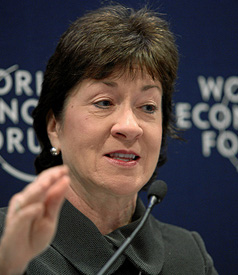Did you know that Truthout is a nonprofit and independently funded by readers like you? If you value what we do, please support our work with a donation.
The financial reform bill in its final stages of legislative action did not break up the big banks, reinstate Glass-Steagall, reign in bonuses and executive salaries, or stop the usury rates for payday loans and credit cards, nor did it require mortgage reform in light of the housing collapse. But there are still some key issues worth fighting for – issues the big banks and, too often, the Obama administration, are trying to remove from the bill.
As the House-Senate banking conference committee continues its closed-door negotiations, bank lobbyists – through big-bank-friendly lawmakers – are trying to strip key reforms from the bill. There are three key issues we should be urging legislators to support:
1. Stop taxpayer subsidies for risky derivatives: Sec. 716 of the Senate bill contains a ban on federal government assistance to any swap entity involved in the risky derivatives market. The derivatives market, worth hundreds of trillions of dollars, is conducted with no transparency and was a root cause of the financial collapse. Sec. 716 will require the five largest banks/swaps dealers (Goldman Sachs, Morgan Stanley, JP Morgan Chase, Citigroup, and Bank of America are responsible for 90 percent of the swaps and derivatives markets) to spin off their swaps desks into separately capitalized affiliates. It is critical to separate the risky casino derivatives market from old-fashioned banking; these banks are so big that if they fail, the taxpayers will be forced – once again – to bail them out or suffer a collapse of the economy. Sec. 716 is designed to prevent a situation in which taxpayers would once again be liable for the risky bad bets of big banks. Sec. 716 would ensure that private sector institutions alone are responsible for these risky trades (You can read here and here for more).
2. Require sufficient capital for bets: Rep. Susan Collins (R-ME) was able to get included an amendment that requires banks to hold sufficient capital for their risky investments. Legislators should be urged to take the strongest measures from the House and Senate versions of the bill. Unfortunately, Obama administration officials in the Treasury Department, along with the Federal Reserve and Wall Street banksters, are working to kill the Collins Amendment even though it was adopted unanimously. The amendment, supported by FDIC co-chair Sheila Bair, would force banks with more than $250 billion in assets to meet higher capital requirements when engaging in risky activities like derivatives, financial guarantees, and repurchase agreements – the types of activities that caused the economic collapse (Read more here and here).
3. Establish an independent consumer agency: Perhaps the most hopeful proposal from President Obama is the creation of an independent consumer agency. The new entity would function as a watchdog to stop obvious bank abuses by providing an avenue for consumer challenges of subprime mortgages, payday loans, hidden bank fees, and abusive and arbitrary rate hikes on credit cards. Unfortunately, the agency has been placed under the Federal Reserve, which is primarily concerned with keeping the banking system stable, and which has already been further weakened by recently passed amendments, such as Rep. Brad Miller’s (D-NC) measure exempting 8,000 of the nation’s 8,200 banks from the Consumer Financial Protection Agency’s oversight. Another amendment requires the director of the agency to take input from other regulators whose focus is protecting the banks, not consumers. These amendments can be removed so consumers have an advocate to protect them against Prosperity Agenda is joining with other organizations like A New Way Forward and Bankster USA to urge legislators to strengthen the final bill. The top targets of our attention are Senate Banking Chair Chris Dodd (D-CT), House Financial Services Chair Barney Frank, Sen. Charles Schumer (D-NY) and Sen. Judd Gregg (R-NH). Click here for a list of conference committee members’ phone numbers and a rundown of where they stand.
There is no question that the concentrated corporate power of Wall Street is working to weaken the already disappointing financial reform bill. There is only one antidote to the financial industry’s power, and that is our power. To be effective, conscious citizens must be organized, active, and persistent. Please call today and let your legislators know you want real reform. Time is running out.
Press freedom is under attack
As Trump cracks down on political speech, independent media is increasingly necessary.
Truthout produces reporting you won’t see in the mainstream: journalism from the frontlines of global conflict, interviews with grassroots movement leaders, high-quality legal analysis and more.
Our work is possible thanks to reader support. Help Truthout catalyze change and social justice — make a tax-deductible monthly or one-time donation today.
